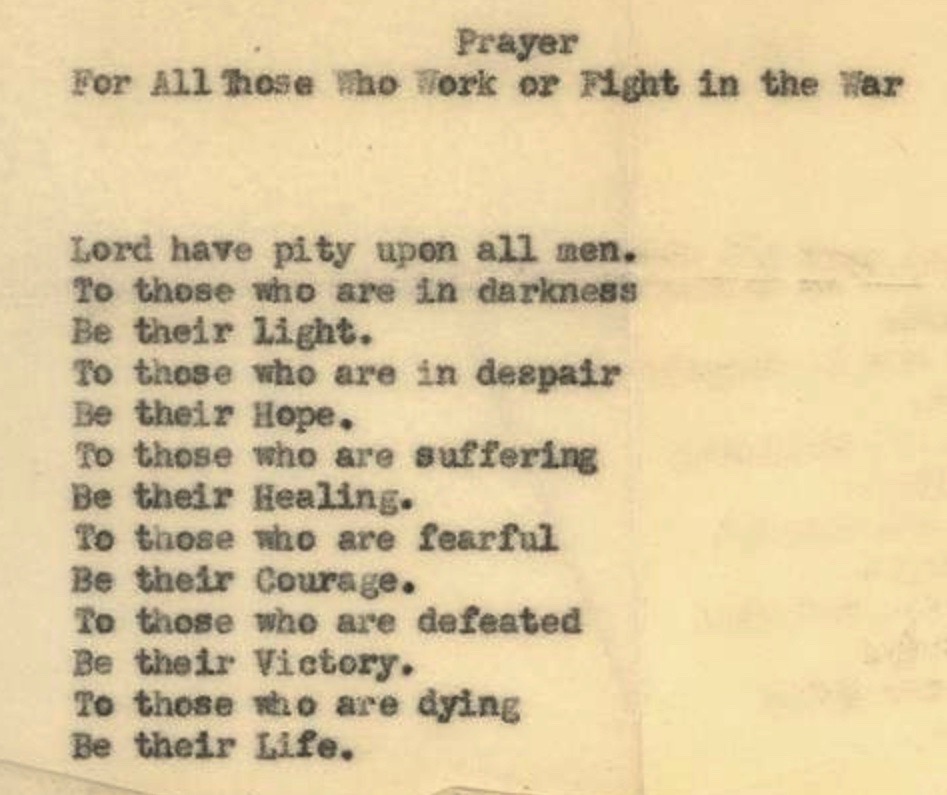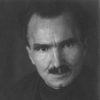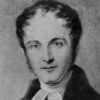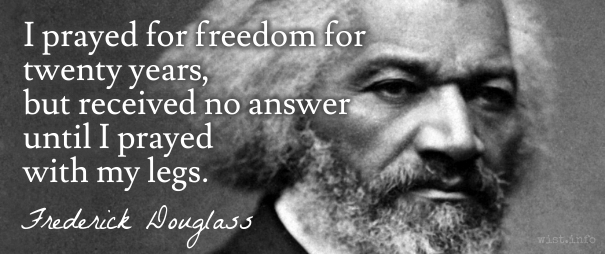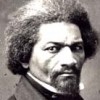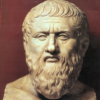Ah, Postumus! they fleet away,
Our years, nor piety one hour
Can win from wrinkles and decay,
And Death’s indomitable power.
[Eheu fugaces, Postume, Postume,
labuntur anni nec pietas moram
rugis et instanti senectae
adferet indomitaeque morti.]Horace (65-8 BC) Roman poet and satirist [Quintus Horacius Flaccus]
Odes [Carmina], Book 2, # 14, l. 1ff (2.14.1-4) (23 BC) [tr. Conington (1872)]
(Source)
"To Postumus." It is unclear which acquaintance of Horace this was addressed to; the name is popularly associated (back to Horace's time) with being given to a child born after the death of their father (which gives it a certain irony here); in reality, it was originally given to the (broader) category of last children of a father.
(Source (Latin)). Alternate translations:
Ah Posthumus! the years of man
Slide on with winged pace, nor can
Vertue reprieve her friend
From wrinkles, age, and end.
[tr. Fanshawe; ed. Brome (1666)]
Time (Posthumus) goes with full sail,
Nor can thy honest heart avail
A furrow'd brow, old age at hand,
Or Death unconquer'd to withstand:
One long night,
Shall hide this light
From all our sight,
And equal Death
Shall few dayes hence,
stop every breath.
[tr. S. W.; ed. Brome (1666)]
The whirling year, Ah Friend! the whirling year Rouls on apace;
And soon shall wrinkles plough thy wither'd Face:
In vain you wast your Pious breath,
No prayers can stay, no vows defer
The swift approach of Age, and conqu'ring Death.
[tr. Creech (1684)]
Alas! my Postumus, my Postumus, the fleeting years glide on; nor will piety cause any delay to wrinkles, and advancing old age, and insuperable death.
[tr. Smart/Buckley (1853)]
Ah, Posthumus, the years, the fleeting years
Still onwards, onwards glide;
Nor mortal virtue may
Time's wrinkling fingers stay,
Nor Age's sure advance, nor Death's all-conquering stride.
[tr. Martin (1864)]
Postumus, Postumus, the years glide by us,
Alas! no piety delays the wrinkles,
Nor old age imminent,
Nor the indomitable hand of Death.
[tr. Bulwer-Lytton (1870)]
Ah! Postumus! Devotion fails
The lapse of gliding years to stay,
With wrinkled age it nought avails
Nor conjures conquering Death away.
[tr. Gladstone (1894)]
Ah me! how quickly, Postumus, Postumus,
Glide by the years! nor even can piety
Delay the wrinkles, and advancing
Age, and attacks of unconquer'd Hades.
[tr. Phelps (1897)]
Alas! Postumus, Postumus, the fleeing years
Slip by, and duteousness does not give pause
To wrinkles, or to hasting age,
Or death unconquerable.
[tr. Garnsey (1907)]
Ah! Postumus, Postumus, fast fly the years,
And prayers to wrinkles and impending age
Bring not delay; nor shalt assuage
Death's stroke with pious tears.
[tr. Marshall (1908)]
Alas, O Postumus, Postumus, the years glide swiftly by, nor will righteousness give pause to wrinkles, to advancing age, or Death invincible.
[tr. Bennett (Loeb) (1912)]
Ah, Postumus, my Postumus, the fleeting years roll by;
Wrinkles and ever nearing eld stay not for piety:
Relentless they, relentless death's unconquered tyranny.
[tr. Mills (1924)]
Ah, how they glide by, Postumus, Postumus,
The years, the swift years! Wrinkles and imminent
Old age and death, whom no one conquers --
Piety cannot delay their onward
March.
[tr. Michie (1963)]
Oh year by year, Póstumay,
Póstumay, time slips by,
And holiness can't stop us drying,
Or hold off death.
[tr. Raffel (1983)]
How the years go by, alas how the years go by.
Behaving well can do nothing at all about it.
Wrinkles will come, old age will come, and death,
Indomitable. Nothing at all will work.
[tr. Ferry (1997)]
Alas! O Postumus, Postumus! Swiftly the years glide by, and no amount of piety will wrinkles delay or halt approaching age or ineluctable death.
[tr. Alexander (1999)]
Oh how the years fly, Postumus, Postumus,
they’re slipping away, virtue brings no respite
from the wrinkles that furrow our brow,
impending old age, Death the invincible.
[tr. Kline (2015)]
Quotations about:
prayer
Note not all quotations have been tagged, so Search may find additional quotes on this topic.
Incline us oh God! to think humbly of ourselves, to be severe only in the examination of our own conduct, to consider our fellow-creatures with kindness, and to judge of all they say and do with that charity which we would desire from them ourselves.
Jane Austen (1775-1817) English author
Prayer 3 “Another Day Now Gone”
(Source)
On e of three surviving prayers Austen wrote. More discussion: Exploring Jane Austen’s Prayers | Jane Austen's World.
From a cross Neighbour, and a sullen Wife,
A pointless Needle, and a broken Knife;
From Suretyship, and from an empty Purse,
A Smoaky Chimney and a jolting Horse;
From a dull Razor, and an aking Head,
From a bad Conscience and a buggy Bed;
A Blow upon the Elbow and the Knee,
From each of these, Good L—d deliver me.Benjamin Franklin (1706-1790) American statesman, scientist, philosopher, aphorist
Poor Richard (1734 ed.)
(Source)
One single grateful thought towards heaven, is the most perfect prayer!
[Ein einziger dankbarer Gedanke gen Himmel ist das vollkommenste Gebet!]
Gotthold Lessing (1729-1781) German playwright, philosopher, dramaturg, writer
Minna von Barnhelm, Act 2, sc. 7 [Minna] (1763) [tr. Holroyd/Bell (1888)]
(Source)
(Source (German)). Alternate translation:
A single grateful thought toward heaven is the most perfect prayer.
[Source (1884)]
Our Father in Heaven, not by Heaven bounded
but there indwelling for the greater love Thou
bear’st Thy first works in the realm first-founded,
hallowed be Thy name, hallowed Thy Power
by every creature as its nature grants it
to praise Thy quickening breath in its brief hour.
Let come to us the sweet peace of Thy reign,
for if it come not we cannot ourselves
attain to it however much we strain.
And as Thine Angels kneeling at the throne
offer their wills to Thee, singing Hosannah,
so teach all men to offer up their own.
Give us this day Thy manna, Lord we pray,
for if he have it not, though man most strive
through these harsh wastes, his speed is his delay.
As we forgive our trespassers the ill
we have endured, do Thou forgive, not weighing
our merits, but the mercy of Thy will.
Our strength is as a reed bent to the ground:
do not Thou test us with the Adversary,
but deliver us from him who sets us round.
This last petition. Lord, with grateful mind,
we pray not for ourselves who have no need,
but for the souls of those we left behind.[O Padre nostro, che ne’ cieli stai,
non circunscritto, ma per più amore
ch’ai primi effetti di là sù tu hai,
laudato sia ’l tuo nome e ’l tuo valore
da ogne creatura, com’è degno
di render grazie al tuo dolce vapore.
Vegna ver’ noi la pace del tuo regno,
ché noi ad essa non potem da noi,
s’ella non vien, con tutto nostro ingegno.
Come del suo voler li angeli tuoi
fan sacrificio a te, cantando osanna,
così facciano li uomini de’ suoi.
Dà oggi a noi la cotidiana manna,
sanza la qual per questo aspro diserto
a retro va chi più di gir s’affanna.
E come noi lo mal ch’avem sofferto
perdoniamo a ciascuno, e tu perdona
benigno, e non guardar lo nostro merto.
Nostra virtù che di legger s’adona,
non spermentar con l’antico avversaro,
ma libera da lui che sì la sprona.
Quest’ultima preghiera, segnor caro,
già non si fa per noi, ché non bisogna,
ma per color che dietro a noi restaro.]Dante Alighieri (1265-1321) Italian poet
The Divine Comedy [Divina Commedia], Book 2 “Purgatorio,” Canto 11, l. 1ff (11.1-24) (1314) [tr. Ciardi (1961)]
(Source)
A paraphrase of the Christian Paternoster (the Lord's Prayer or "Our Father," from Matt. 6.9-13) prayer, recited by the Proud in Purgatory as both a "first children's prayer" and an act of humility. While it may seem blasphemous for Dante to modify a Biblical prayer in this way, St. Augustine wrote that the Lord's Prayer could be personalized, so long as its main petitions remained intact.
Given the length of the passage, I've reduced the number of parallel translations shown.
(Source (Italian)). Alternate translations:
Great Father! whom the Universe obeys!
Who, by thy boundless Love's transcendent rays.
In purest light, the brightest virtue flows:
Let all the orders of creation join
In one deep plaudit to that love divine.
Which thro' the countless tribes of being glows.
Let thy celestial Grace, with heav'nly plume,
Descend, where, plung'd in this terrestrial gloom,
We ply our powers in vain, to seize the boon;
And as the Powers above, that own thy sway,
With joy the dictates of thy will obey.
So may th' example spread beneath the Moon.
May thy unsparing hand, with daily food,
Supply our frailty; else, by Time subdu'd,
Our steps must falter in this vale of woe;
As other's faults we pass, do thou forgive! --
Let not our deep defects our souls deprive
Of thy supernal favours, bounteous flow!
With thy protecting hand, O Saviour! shield
Our stagg'ring virtue, in the dangerous field!
And keep at bay the sin-provoking Foe.
We pray not for ourselves, but those behind.
That, breathing still, their painful journey wind
Thro' the sublunar vale of crimes and woe.
[tr. Boyd (1802), st. 1-4]
Our Father, thou who dwellest in the heavens,
Not circumscribed, but from the greater love
Thou bearest to the first effects on high,
Praised be thy name and thine omnipotence
By every creature, as befitting is
To render thanks to thy sweet effluence.
Come unto us the peace of thy dominion,
For unto it we cannot of ourselves,
If it come not, with all our intellect.
Even as thine own Angels of their will
Make sacrifice to thee, Hosanna singing,
So may all men make sacrifice of theirs.
Give unto us this day our daily manna,
Withouten which in this rough wilderness
Backward goes he who toils most to advance.
And even as we the trespass we have suffered
Pardon in one another, pardon thou
Benignly, and regard not our desert.
Our virtue, which is easily o'ercome,
Put not to proof with the old Adversary,
But thou from him who spurs it so, deliver.
This last petition verily, dear Lord,
Not for ourselves is made, who need it not,
But for their sake who have remained behind us.
[tr. Longfellow (1867)]
Our Father, who in the heavens abidest, not as circumscribed, but through the greater love which Thou hast to Thy first effects on high, praised be Thy name and Thy worth by every creature, as it is meet to render thanks to Thy sweet Spirit. Let the peace of Thy kingdom come to us, for we towards it can naught of ourselves, if it comes not, with all our wit As of their will Thy angels make sacrifice to Thee, chanting Hosanna, so may men do of theirs. Give this day to us the daily manna, without which through this rough desert backward he goes who most toils to go forward. And as we forgive to each man the evil which we have suffered, do Thou also graciously forgive, and not regard our merit. Our strength, which easily surrenders, put not Thou to proof with the old adversary, but deliver it from him, who so urges it This last prayer, dear Lord, no longer is made for us, for it needs not, but for those who have remained behind us.
[tr. Butler (1885)]
Our Father who dost dwell in Heaven above,
Not circumscribed, but that Thou there dost place
Upon Thy primal effluence, higher love,
For ever hallowed be Thy Name and grace,
By each created thing, as is most right
In rendering thanks Thy savour to embrace.
The peace of Thy own kingdom on us light,
Which of ourselves we never could attain.
Unless it come through striving with all might.
As, by their own desire, Thy angels fain
Singing Hosanna, sacrifice to Thee,
So may Thy will be done on earth by man.
Provide us with our daily manna free,
Without the which, this desert road along.
He would go back, who striveth most to flee.
And as we pardon unto each the wrong
Which we have suffered, be our pardoner,
Nor weigh the merits which to us belong.
Our virtue, which so easily doth err,
Do not thou test it with the ancient foe,
Deliver us from him that so doth spur.
This last petition, O dear Lord, we owe
Not for ourselves, for whom is no more need,
Rather for those we've left behind below.
[tr. Minchin (1885)]
O our Father, who art in heaven above,
Not as being circumscribed, but because toward
Thy first creation thou hast greater love,
Hallowed thy name be and thy power adored
By every creature, as is meet and right
To give thanks for the sweetness from thee poured;
May upon us thy kingdom's peace alight.
For to it of ourselves we cannot rise,
Unless it come itself, with all our wit.
As of their will thine angels' companies
Make sacrifice, as they Hosanna sing,
So may men make of their will sacrifice.
To us this day our daily manna bring:
Else through this desert harsh must he revert
His steps, who most to advance is labouring.
And as we pardon every one the hurt
That we have suffered, do thou pardon too,
Begninant, nor remember our desert.
Try not our will, so easy to subdue,
With the old adversary, and by thine aid
Save us from him who goads it, to our rue.
This last prayer, dear Lord, is for us not made
Any more, since remaineth now no need,
But 'tis for those who have behind us stayed.
[tr. Binyon (1943)]
Our Father, dwelling in the Heavens, nowise
As circumscribed, but as the things above,
Thy first effects, are dearest in Thine eyes.
Hallowed Thy name be and the Power thereof,
By every creature, as right meet it is
We praise the tender effluence of Thy Love.
Let come to us, let come Thy Kingdom's peace;
If it come not, we've no power of our own
To come to it, for all our subtleties.
Like as with glad Hosannas as Thy throne
Thine angels offer up their wills away,
So let men offer theirs, that Thine be done.
Our daily manna give to us this day,
Without which he that through this desert wild
Toils most to speed goes backward on his way.
As we, with all our debtors reconciled,
Forgive, do Thou forgive us, nor regard
Our merits, but upon our sins look mild.
Put not our strength, too easily ensnared
And overcome, to proof with the old foe;
But save us from him, for he tries it hard.
This last prayer is not made for us -- we know,
Dear Lord, that it is needless -- but for those
Who still remain behind us we pray so.
[tr. Sayers (1955)]
Our Father Who in Heaven dost abide,
not there constrained but dwelling there because
Thou lovest more Thy lofty first effects,
hallowed by Thy name, hallowed Thy Power,
by Thy creatures as it behooves us all
to render thanks for Thy sweet effluence.
Thy kingdom come to us with all its peace;
if it come not, we of ourselves cannot
attain to it, no matter how we strive.
And as Thine angels offer up their wills
to Thee in sacrifice, singing Hosannah,
let all men offer up to Thee their own.
Give us this day our daily manna, Lord:
without it, those most eager to advance
go backwards through this wild wasteland of ours.
As we forgive our trespassers, do Thou,
forgive our trespasses, merciful Lord,
look not upon our undeserving worth.
Our strength is only weakness, lead us not
into temptation by our ancient foe,
deliver us from him who urges evil.
This last request, beloved Lord, we make
not for ourselves, who know we have no need,
but for those souls who still remain behind.
[tr. Musa (1981)]
Our father, which art in heaven,
Not because circumscribed, but out of the greater love
You have for your first creation on high,
Praise be to your name and worthiness
From every creature, as it is appropriate
To render thanks to your sweet charity.
Thy kingdom come, and the peace of thy kingdom,
Because we cannot attain it of ourselves,
If it does not come, for all our ingenuity.
As of their own freewill your angels
Make sacrifice to you, singing Hosanna,
So may men also do of their freewill.
Give us this day our daily manna,
Without which, through the roughness of this desert,
He who tries hardest to advance, goes backward.
And as we forgive everyone the evil
That we have suffered, may you pardon us
Graciously, and have no regard to our merits.
Do not put our virtue to the test
With the old adversary, it is easily overcome,
But free us from him who spurs us on.
This last prayer, dear Lord, we no longer
Make for ourselves, having no need of it,
But for those who are left behind us.
[tr. Sisson (1981)]
Our Father, You who dwell within the heavens --
but are not circumscribed by them -- out of
Your greater love for Your first works above,
praised be Your name and Your omnipotence,
by every creature, just as it is seemly
to offer thanks to Your sweet effluence.
Your kingdom’s peace come unto us, for if
it does not come, then though we summon all
our force, we cannot reach it of our selves.
Just as Your angels, as they sing Hosanna,
offer their wills to You as sacrifice,
so may men offer up their wills to You.
Give unto us this day the daily manna
without which he who labors most to move
ahead through this harsh wilderness falls back.
Even as we forgive all who have done
us injury, may You, benevolent,
forgive, and do not judge us by our worth.
Try not our strength, so easily subdued,
against the ancient foe, but set it free
from him who goads it to perversity.
This last request we now address to You,
dear Lord, not for ourselves -- who have no need --
but for the ones whom we have left behind.
[tr. Mandelbaum (1982)]
O our Father who are in the heavens, not circumscribed, but because of the greater love you bear those first effects up there,
praised be your Name and your Power by every creature, for it is fitting to give thanks to your sweet Spirit.
Let the peace of your kingdom come to us, for we cannot attain to it by ourselves, if it does not come, with all our wit.
As the angels sacrifice their wills to you, singing Hosanna, so let men do with theirs.
Give us this day our daily manna, without which in this harsh wilderness he goes backwards who most strives forward.
And as we forgive all others for the evil we have suffered, do you forgive us lovingly, and do not regard our merit.
Our strength, which is easily subdued, do not tempt with the ancient adversary, but free it from him who spurs it so.
This last prayer, dear Lord, we do not make for ourselves, since there is no need, but for those who have stayed behind.
[tr. Durling (2003)]
O our Father, who are in Heaven, not because of your limitation, but because of the greater love you have for your first sublime works, praised be your name and worth by every creature, as it is fitting to give thanks for your sweet outpourings. May the peace of your kingdom come to us, since we cannot reach it by ourselves, despite all our intellect, if it does not come to us itself. As Angels sacrifice their will to yours, singing Hosanna: so may men sacrifice theirs. Give us this day our daily bread, without which he who labours to advance, goes backward, through this harsh desert. And forgive in loving-kindness, as we forgive everyone, the evil we have suffered, and judge us not by what we deserve. Do not test our virtue, that is easily conquered, against the ancient enemy, but deliver us from him who tempts it. And this last prayer, dear Lord, is not made on our behalf, since we do not need it, but for those we have left behind.
[tr. Kline (2002)]
O our Father, whose place is high in Heaven
Not fixed or held in the sky, but there ascending
Because of Your love for the first of Your creations,
May Your name be praised by every living
Creature, and also Your virtues, for You deserve
Such gratitude for all the emanations
You send us. May your kingdom's peace come down
To us, who are not strong enough by ourselves,
And can not take it, no matter how we strive.
Just as Your angels sacrifice their wills
To You, singing Hosannah, men as well
Should bend their wills to Yours, and sing Hosannah.
Give us, this day, our daily grace, without which
Men go backwards, here in this bitter desert,
Forced to go back, although they struggle for more.
And just as we forgive to all men the wrongs
We have endured, may You in loving kindness
Pardon us, in spite of all our sins.
Our powers are weak, and easily overcome:
Do not oblige us to fight our ancient foe,
But free us from him, who tries to woo us with evil.
And this last prayer, dear Lord, we do not make
For ourselves, who are not in need, but for the sake
Of those behind us, as we rise to Your face.
[tr. Raffel (2010)]
Speaking of atheism, I remember one time when Jack Patton and I went to a sermon in Vietnam delivered by the highest-ranking Chaplain in the Army. He was a General.
The sermon was based on what he claimed was a well-known fact, that there were no Atheists in foxholes.
I asked Jack what he thought of the sermon afterwards, and he said, “There’s a Chaplain who never visited the front.”
And I have known small cities, who revere
The Gods, made subject to unrighteous power,
Vanquish’d by spears more numerous.[πόλεις τε μικρὰς οἶδα τιμώσας θεούς,
αἳ μειζόνων κλύουσι δυσσεβεστέρων
λόγχης ἀριθμῷ πλείονος κρατούμεναι.]Euripides (485?-406? BC) Greek tragic dramatist
Bellerophon [Βελλεροφῶν], frag. 286 (TGF) (c. 430 BC) [tr. Wodhull (1809)]
(Source)
Nauck (TGF) frag. 286, Barnes frag. 8, Musgrave frag. 25. (Source (Greek)). Alternate translations:
I know too of small cities doing honour to the gods which are subject to larger, more impious ones, because they are overcome by a more numerous army.
[tr. Collard, Hargreaves, Cropp (1995)]
I see minor states that honor gods subject to greater ones that revere none, for ‘might is right’.
[tr. Stevens (2012)]
I know small cities honouring the gods that obey larger and more impious ones since they are outnumbered in spearmen.
[tr. Dixon (2014)]
I know that small cities honor the gods,
Cities that obey stronger more impious men
Because they are overpowered by the strength of their arms.
[tr. @sentantiq (2015)]
I know of small cities where the gods are honored: yet these same cities are forced to comply with the demands of impious men in larger cities, overpowered by the sheer magnitude of their armament.
[tr. Emerson]
I arise today
Through the strength of heaven:
Light of sun,
Brilliance of moon,
Splendor of fire,
Speed of lightning,
Swiftness of wind,
Depth of sea,
Stability of earth,
Firmness of rock.Patrick (fl. AD 5th C) Romano-British Christian missionary, saint, bishop of Ireland
“The Lorica of Patrick” (attributed)
(Source)
KENT: Fortune, good-night. Smile once more; turn thy wheel.
William Shakespeare (1564-1616) English dramatist and poet
King Lear, Act 2, sc. 2, l. 188 (2.2.188) (1606)
(Source)
Farmers, pray for summers with lots of rain,
And winters with lots of sun.[Humida solstitia atque hiemes orate serenas,
agricolae.]Virgil (70-19 BC) Roman poet [b. Publius Vergilius Maro; also Vergil]
Georgics [Georgica], Book 1, l. 100ff (1.100) (29 BC) [tr. Ferry (2015)]
(Source)
(Source (Latin)). Alternate translations:
Swaines pray for winters faire, and summers wet.
[tr. Ogilby (1649)]
Ye Swains, invoke the Pow'rs who rule the Sky,
For a moist Summer, and a Winter dry.
[tr. Dryden (1709), ll. 146-147]
Ye husbandmen! intreat the gods by pray'r
For wat'ry solstices, and winters fair.
[tr. Nevile (1767)]
Swains! pray for wintry dust, and summer rain.
[tr. Sotheby (1800)]
Pray, ye swains, for moist summers and serene winters.
[tr. Davidson (1854)]
For winters dry, and showery summers, pray.
[tr. Blackmore (1871), l. 116]
Pray for showery summers and dry winters, husbandmen.
[tr. Wilkins (1873)]
Pray for wet summers and for winters fine,
Ye husbandmen.
[tr. Rhoades (1881)]
Now pay thy vows: be this the ploughman’s prayer:
Bright be the winter day, and moist the summer air.
[tr. King (1882), ll. 99-100]
Pray, ye swains, for moist summers and serene winters.
[tr. Bryce (1897)]
Pray for dripping midsummers and clear winters, O husbandmen.
[tr. Mackail (1899)]
Pray for wet summers and for winters fine,
Ye husbandmen.
[tr. Greenough (1900)]
For drizzling summers and sunny winters, husbandmen, pray.
[tr. Way (1912)]
For summers moist and windless winters fair
Pray heaven, ye farmer-folk.
[tr. Williams (1915)]
For moist summers and sunny winters, pray, farmers!
[tr. Fairclough (Loeb) (1916)]
Wet midsummers and fair winters are what the farmer
Should ask for.
[tr. Day-Lewis (1940)]
Pray for wet midsummers, farmer friends,
And clear, cold winter skies.
[tr. Bovie (1956)]
Wet skies in midsummer and clear in winter
Farmers should pray for.
[tr. Wilkinson (1982)]
Farmers, pray for moist summers and mild winters.
[tr. Kline (2001)]
Farmers pray for wet summers and winters with clear blue skies.
[tr. Lembke (2004)]
The countryman should pray for wet summers and mild winters.
[tr. Fallon (2006)]
For humid summers and winters mild, pray, O farmers.
[tr. Johnson (2009)]
O farmers, pray that your summers be wet and your winters clear.
[Bartlett's]
What prayer should we call wise?
What gift of Heaven should man
Count a more noble prize,
A prayer more prudent, than
To stretch a conquering arm
Over the fallen crest
Of those who wished us harm?
And what is noble every heart loves best.[τί τὸ σοφόν; ἢ τί τὸ κάλλιον
παρὰ θεῶν γέρας ἐν βροτοῖς
ἢ χεῖρ᾽ ὑπὲρ κορυφᾶς
880τῶν ἐχθρῶν κρείσσω κατέχειν;
ὅ τι καλὸν φίλον ἀεί.]Euripides (485?-406? BC) Greek tragic dramatist
Bacchæ [Βάκχαι], l. 877ff, Stasimon 3 (Ode 4), Refrain [Chorus/Χορός] (405 BC) [tr. Vellacott (1973)]
(Source)
While the passage seems to praise the putting down of one's enemies as the greatest gift of the gods, some modern scholars suggest the final line raises doubts or disagrees with that conclusion.
(Source (Greek)). Alternate translations:
What greater privilege 'midst the fell debate
Can sage or chieftain from the Gods request
Than that of ever fast'ning on the crest
Of the miscreant whom we hate?
Pleasure with unsullied fame
Ever must alliance claim.
[tr. Wodhull (1809)]
What is wisdom? Or what greater honor do the gods give to mortals than to hold one's hand in strength over the head of enemies? What is good is always dear.
[tr. Buckley (1850)]
What is wisest? what is fairest,
Of god's boons to man the rarest?
With the conscious conquering hand
Above the foeman's head to stand.
What is fairest still is dearest.
[tr. Milman (1865)]
What wiser and what nobler gift
Can the good gods bestow on man,
Than when his hands they strengthen, till
He conquers o’er his foeman’s head:
That which is noble, ever is dear.
[tr. Rogers (1872)]
What is true wisdom, or what fairer boon has heaven placed in mortals’ reach, than to gain the mastery o’er a fallen foe? What is fair is dear for aye.
[tr. Coleridge (1891)]
What wisdom's crown, what guerdon, shines more glorious
That Gods can give the sons of men, than this --
O'er crests of foes to stretch the hand victorious?
Honour is precious evermore, I wis.
[tr. Way (1898)]
What else is Wisdom? What of man's endeavour
Or God's high grace, so lovely and so great?
To stand from fear set free, to breathe and wait;
To hold a hand uplifted over Hate;
And shall not Loveliness be loved for ever?
[tr. Murray (1902)]
What is wisdom? What gift of the gods
is held in honor like this:
to hold your hand victorious
over the heads of those you hate?
Honor is precious forever.
[tr. Arrowsmith (1960)]
What is wisdom? Or what fairer
gift from the gods in men's eyes
than to hold the hand of power
over the head of one's enemies?
And "what is fair is always followed."
[tr. Kirk (1970)]
What is wisdom, ah! what fairer thing
to mortal men can the gods bestow
than holding high overhead
a firmer first over the foe?
The fair is dear, and forever.
[tr. Neuburg (1988)]
What is wisdom? Which
of all the God-given gifts
is more beneficial to man
than the power to hold
an enemy powerless at bay?
That which is good is welcome forever.
[tr. Cacoyannis (1982)]
What is wisdom? Or what lovelier gift
From the gods, in moral eyes
Than to hold a stronger hand
Over enemy heads:
Honor is dear -- always.
[tr. Blessington (1993)]
What good is mere cleverness?
Or rather, what god-given gifts
bring more honor to mortals
than to hold the hand of mastery
over the head of the enemy?
Whatever is honorable is dear always.
[tr. Esposito (1998)]
What is wise? What is the finest gift
that gods can give to mortals?
A hand on the heads
of their enemies, pushing down?
[No.] What is fine is loved always.
[tr. Woodruff (1999)]
What is wise? What fit from the gods
Do mortals judge more beautiful
Than to hold our outstretched
Strong hand over an enemy's head?
What is beautiful is what is always loved.
[tr. Gibbons/Segal (2000)]
What good is cleverness? Is there any god-given privilege
nobler than the sight of men
than to hold one's hand in triumph
over the heads of foes?
What is noble is always loved.
[tr. Kovacs (2002)]
What is true wisdom?
What is beauty?
What could be better
Than in your hand to hold
Your enemy's fate?
Beauty is always truth;
And truth beauty.
[tr. Teevan (2002)]
What better, what wiser gift a god could give to men than to hold their hand high above their head as a sign of victory over their enemy?
I always admire the good.
[tr. Theodoridis (2005)]
What is it to be wise? And what gift of the
Immortals is more gracious in humans?
Is it holding your hand over
Your enemies’ head?
What's right is always welcome.
[tr. Valerie (2005)]
What is wisdom? What is finer than the rights
men get from gods -- to hold their powerful hands
over the heads of their enemies?
Ah yes, what's good is always loved.
[tr. Johnston (2008), l. 1079ff]
What is wisdom?
The greatest gift of the gods is honour:
to reach your hand in triumph up
over the heads of the enemy.
Honour is everything.
[tr. Robertson (2014)]
What is wisdom? Here, now?
What is the highest blessing of gods to mortals?
It is to stretch out your hand
over the head of the one you hate,
the one that hates you,
and know your strength is greater.
Doesn’t that always feel good?
[tr. Pauly (2019)]
What wisdom should guide us? What gift of the gods do people prize more than a strong hand to hold over an enemy's head? Honor is always loved.
[tr. Behr/Foster (2019)]
What is wisdom [sophon]? Or what finer prize
do the gods give to mortals than to hold one’s hand
in victory over the head of one’s enemies?
Whatever is beautiful [kalon] is near and dear [philon] forever.
[tr. Buckley/Sens/Nagy (2020)]
Tastes differ, but I know of no finer prayer than the one which ends old Indian dramas (just as in former times English plays ended with a prayer for the King). It runs: “May all living beings remain free from pain.”
[Der Geschmack ist verschieden; aber ich weiß mir kein schöneres Gebet, als Das, womit die Alt-Indischen Schauspiele (wie in früheren Zeiten die Englischen mit dem für den König) schließen. Es lautet: „Mögen alle lebenden Wesen von Schmerzen frei bleiben.”]
Arthur Schopenhauer (1788-1860) German philosopher
On the Basis of Morality [Über die Grundlage der Moral], § 19.4 (Part 3, ch. 8.4) (1840) [tr. Saunders (1965)]
(Source)
(Source (German)). Alternate translation:
In former times the English plays used to finish with a petition for the King. The old Indian dramas close with these words: "May all living beings be delivered from pain." Tastes differ; but in my opinion there is no more beautiful prayer than this.
[tr. Bullock (1903)]
Goodness is about what you do. Not who you pray to.
I praise Thee while my days go on;
I love Thee while my days go on!
Through dark and dearth, through fire and frost,
With emptied arms and treasure lost,
I thank Thee while my days go on.
Miserable mortals! Can we contribute to the honour and glory of God? I could wish that expression were struck out of our prayer books.
No longer dream that human prayer
The will of Fate can overbear.[Desine fata deum flecti sperare precando.]
Virgil (70-19 BC) Roman poet [b. Publius Vergilius Maro; also Vergil]
The Aeneid [Ænē̆is], Book 6, l. 176ff (6.176) [The Sybil] (29-19 BC) [tr. Conington (1866)]
(Source)
Speaking to dead Palinurus.
(Source (Latin)). Alternate translations:
Desist to hope that fates will heare thy prayer
[tr. Ogilby (1649)]
Fate, and the dooming gods, are deaf to tears.
[tr. Dryden (1697)]
Cease to hope that the decrees of the gods are to be altered by prayers.
[tr. Davidson/Buckley (1854)]
Cease to hope
By prayers to bend the destinies divine.
[tr. Cranch (1872)]
Cease to hope prayers may bend the decrees of heaven.
[tr. Mackail (1885)]
Hope not the Fates of very God to change by any prayer.
[tr. Morris (1900)]
Hope not by prayer to bend the Fates' decree.
[tr. Taylor (1907), st. 51, l. 454]
Hope not by prayer to change the laws of Heaven!
[tr. Williams (1910)]
Cease to dream that heaven's decrees may be turned aside by prayer.
[tr. Fairclough (1916)]
Give up the hope
That fate is changed by praying.
[tr. Humphries (1951)]
Give up this hope that the course of fate can be swerved by prayer.
[tr. Day-Lewis (1952)]
Leave any hope that prayer can turn aside
the gods' decrees.
[tr. Mandelbaum (1971), ll. 495-96]
Abandon hope by prayer to make the gods
Change their decrees.
[tr. Fitzgerald (1981), ll. 506-7]
You must cease to hope that the Fates of the gods can be altered by prayers.
[tr. West (1990)]
Cease to hope that divine fate can be tempered by prayer.
[tr. Kline (2002)]
Stop hoping that the gods' decrees
Can be bent with prayer.
[tr. Lombardo (2005)]
Hope no more
the gods’ decrees can be brushed aside by prayer,
[tr. Fagles (2006), l. 428-29]
As if the gods' fates could be bent by prayer.
[tr. Bartsch (2021)]
The time spent in praying to God, might be better employed in deserving well from him. Men think praying the easier Task of the two, and therefore choose it.
George Savile, Marquis of Halifax (1633-1695) English politician and essayist
“Religion,” Political, Moral, and Miscellaneous Thoughts and Reflections (1750)
(Source)
You gods who hold dominion over spirits,
you voiceless Shades; you, Phlegethon and Chaos,
immense and soundless regions of the night:
allow me to retell what I was told;
allow me by your power to disclose
things buried in the dark and deep of earth![Di, quibus imperium est animarum, umbraeque silentes,
Et Chaos, et Phlegethon, loca nocte tacentia late,
Sit mihi fas audita loqui: sit numine vestro
Pandere res alta terra et caligine mersas.]Virgil (70-19 BC) Roman poet [b. Publius Vergilius Maro; also Vergil]
The Aeneid [Ænē̆is], Book 6, l. 264ff (6.264-267) (29-19 BC) [tr. Mandelbaum (1971), l. 350ff]
(Source)
Virgil, the author, breaking the fourth wall and asking the spirits of the Underworld permission to tell of what happened to Aeneas down there.
(Source (Latin)). Alternate translations:
You Gods who souls command, and silent ghosts,
Phlegeton, Chaos, nights vast dismall coasts.
Grant I declare things heard, by your aid shew
What earth and darknesse long hath hid below.
[tr. Ogilby (1649)]
Ye realms, yet unrevealed to human sight,
Ye gods who rule the regions of the night,
Ye gliding ghosts, permit me to relate
The mystic wonders of your silent state!
[tr. Dryden (1697)]
Ye gods, to whom the empire of ghosts belong, and ye silent shades, and Chaos, and Phlegethon, places where silence reigns around in night! permit me to utter the secrets heard; may I by your divine will disclose things buried in deep earth and darkness.
[tr. Davidson/Buckley (1854)]
Eternal Powers, whose sway controls
The empire of departed souls,
Ye too, throughout whose wide domain
Blank Night and grisly Silence reign,
Hoar Chaos, awful Phlegethon,
What ear has heard let tongue make known:
Vouchsafe your sanction, nor forbid
To utter things in darkness hid.
[tr. Conington (1866)]
Ye deities, whose empire is of souls!
Ye silent Shades, -- Chaos and Phlegethon!
Ye wide dumb spaces stretching through the night!
Be it lawful that I speak what I have heard,
And by your will divine unfold the things
Buried in gloomy depths of deepest earth!
[tr. Cranch (1872), l. 325ff]
Gods who are sovereign over souls! silent ghosts, and Chaos and Phlegethon, the wide dumb realm of night! as I have heard, so let me tell, and according to your will unfold things sunken deep under earth in gloom.
[tr. Mackail (1885)]
O Gods, who rule the ghosts of men, O silent shades of death,
Chaos and Phlegethon, hushed lands that lie beneath the night!
Let me speak now, for I have heard: O aid me with your might
To open things deep sunk in earth, and mid the darkness blent.
[tr. Morris (1900)]
O silent Shades, and ye, the powers of Hell,
Chaos and Phlegethon, wide realms of night,
What ear hath heard, permit the tongue to tell,
High matter, veiled in darkness, to indite.
[tr. Taylor (1907), st. 37, l. 325ff]
Ye gods! who rule the spirits of the dead!
Ye voiceless shades and silent lands of night!
O Phlegethon! O Chaos! let my song,
If it be lawful, in fit words declare
What I have heard; and by your help divine
Unfold what hidden things enshrouded lie
In that dark underworld of sightless gloom.
[tr. Williams (1910)]
Ye gods, who hold the domain of spirits! You voiceless shades! Thou, Chaos, and thou, Phlegethon, ye broad, silent tracts of night! Suffer me to tell what I have heard; suffer me of your grace to unfold secrets buried in the depths and darkness of the earth!
[tr. Fairclough (1916)]
Gods of the world of spirit, silent shadows,
Chaos and Phlegethon, areas of silence,
Wide realms of dark, may it be right and proper
To tell what I have heard, this revelation
Of matters buried deep in earth and darkness!
[tr. Humphries (1951)]
Chaos, and Phlegethon! O mute wide leagues of Nightland! --
Grant me to tell what I have heard! With your assent
May I reveal what lies deep in the gloomof the Underworld!
[tr. Day-Lewis (1952)]
Gods who rule the ghosts; all silent shades;
And Chaos and infernal Fiery Stream,
And regions of wide night without a sound,
May it be right to tell what I have heard,
May it be right, and fitting, by your will,
That I describe the deep world sunk in darkness
Under the earth.
[tr. Fitzgerald (1981), l. 363ff]
You gods who rule the world of the spirits, you silent shades, and Chaos, and Phlegethon, you dark and silent wastes, let it be right for me to tell what I have been told, let it be with your divine blessing that I reveal what is hidden deep in the mists beneath the earth.
[tr. West (1990)]
You gods, whose is the realm of spirits, and you, dumb shadows,
and Chaos, Phlegethon, wide silent places of the night,
let me tell what I have heard: by your power, let me
reveal things buried in the deep earth, and the darkness.
[tr. Kline (2002)]
Gods of the world below, silent shades,
Chaos and Phlegethon, soundless tracts of Night --
Grant me the grace to tell what I have heard,
And lay bare the mysteries in the earth's abyss.
[tr. Lombardo (2005)]
You gods
who govern the realm of ghosts, you voiceless shades and Chaos --
you, the River of Fire, you far-flung regions hushed in night --
lend me the right to tell what I have heard, lend your power
to reveal the world immersed in the misty depths of earth.
[tr. Fagles (2006), l. 302ff]
O gods who govern souls, O silent shades, Chaos, Phlegethon, and mute expanses of the night, let it be right to tell what I have heard, let me show what's buried deep in earth and darkness.
[tr. Bartsch (2021)]
The Almighty is a wonderful handicapper: He will not give us everything.
Margot Asquith (1864-1945) British socialite, author, wit [Emma Margaret Asquith, Countess Oxford and Asquith; Margot Oxford; née Tennant]
Autobiography, Vol. 1, ch. 8 (1920)
(Source)
You’re running away — from me? Oh, I pray you
by these tears, by the faith in your right hand —
what else have I left myself in all my pain? —
by our wedding vows, the marriage we began,
if I deserve some decency from you now,
if anything mine has ever won your heart,
pity a great house about to fall, I pray you,
if prayers have any place — reject this scheme of yours![Mene fugis? Per ego has lacrimas dextramque tuam te
(Quando aliud mihi jam miserae nihil ipsa reliqui)
Per connubia nostra, per inceptos Hymenaeos;
Si bene quid de te merui, fuit aut tibi quidquam
Dulce meum, miserere domus labentis, et istam,
Oro, si quis adhuc precibus locus, exue mentem.]Virgil (70-19 BC) Roman poet [b. Publius Vergilius Maro; also Vergil]
The Aeneid [Ænē̆is], Book 4, l. 314ff (3.314-319) [Dido] (29-19 BC) [tr. Fagles (2006), l. 390ff]
(Source)
Dido begging Aeneas not to desert her.
(Source (Latin)). Alternate translations:
Or fly'st thou me? by these tears, this right hand,
(Since nothing else remains to woefull me)
Our marriage, our prepar'd solemnity.
If I have well deserv'd, or ought was mine,
Pity a falling house, change this designe
If prayers have power.
[tr. Ogilby (1649)]
See whom you fly! am I the foe you shun?
Now, by those holy vows, so late begun,
By this right hand, (since I have nothing more
To challenge, but the faith you gave before;)
I beg you by these tears too truly shed,
By the new pleasures of our nuptial bed;
If ever Dido, when you most were kind,
Were pleasing in your eyes, or touch'd your mind;
By these my pray'rs, if pray'rs may yet have place,
Pity the fortunes of a falling race.
[tr. Dryden (1697)]
Wilt thou fly from me? By these tears, by that right hand, (since I have left nothing else to myself now, a wretch forlorn,) by our nuptial rights, by our conjugal loves begun; if I have deserved any thanks at they hand, or if ever you saw any charms in me, take pity, I implore thee, on a falling race, and, if yet there is any room for prayers, lay aside your resolution.
[tr. Davidson/Buckley (1854)]
From me you fly! Ah! let me crave,
By these poor tears, that hand you gave --
Since, parting with my woman's pride,
My madness leaves me nought beside --
By that our wedlock, by the rite
Which, but begun, could yet unite,
If e'er my kindness held you bound,
If e'er in me your joy you found,
Look on this falling house, and still,
If prayer can touch you, change your will.
[tr. Conington (1866)]
Fly'st thou from me?
Ah, by these tears, and by this hand of thine
(Since to me, wretched, nothing else is left).
By our marriage tie, our nuptial rites begun.
If any favor I deserved of thee,
Or if in anything I have been sweet
And dear to thee, pity this falling house!
I do beseech thee, if there yet be room
For entreaty, change, ah, change that fixed intent!
[tr. Cranch (1872), l. 406ff]
Fliest thou from me? me who by these tears and thine own hand beseech thee, since naught else, alas! have I kept mine own—by our union and the marriage rites preparing; if I have done thee any grace, or aught of mine hath once been sweet in thy sight,—pity our sinking house, and if there yet be room for prayers, put off this purpose of thine.
[tr. Mackail (1885)]
Yea, me thou fleest. O by these tears, by that right hand of thine,
Since I myself have left myself unhappy nought but this,
And by our bridal of that day and early wedding bliss,
If ever I were worthy thanks, if sweet in aught I were,
Pity a falling house! If yet be left a space for prayer,
O then I pray thee put away this mind of evil things!
[tr. Morris (1900)]
"Me dost thou fly? O, by these tears, thy hand
Late pledged, since madness leaves me naught beside,
By lovers' vows and wedlock's sacred band,
Scarce knit and now too soon to be untied;
If aught were pleasing in a new-won bride,
If sweet the memory of our marriage day,
O by these prayers -- if place for prayer abide --
In mercy put that cruel mind away.
Pity a falling house, now hastening to decay.
[tr. Taylor (1907), st. 40, l. 352ff]
Is it from me
thou takest flight? O, by these flowing tears,
by thine own plighted word (for nothing more
my weakness left to miserable me),
by our poor marriage of imperfect vow,
if aught to me thou owest, if aught in me
ever have pleased thee -- O, be merciful
to my low-fallen fortunes! I implore,
if place be left for prayer, thy purpose change!
[tr. Williams (1910)]
From me dost thou flee? By these tears and thy right hand, I pray thee -- since naught else, alas! have I left myself -- by our marriage, by the wedlock begun, if ever I deserved well of thee, or if aught of mine has been sweet in thy sight, pity a falling house, and if yet there be any room for prayers, put away this purpose of thine.
[tr. Fairclough (1916)]
I am the one you flee from: true? I beg you
By my own tears, and your right hand -- (I have nothing
Else left my wretchedness) -- by the beginnings
Of marriage, wedlock, what we had, if ever
I served you well, if anything of mine
Was ever sweet to you, I beg you, pity
A falling house; if there is room for pleading
As late as this, I plead, put off that purpose.
[tr. Humphries (1951)]
Am I your reason for going? By these tears, by the hand you gave me --
They are all I have left, today, in my misery -- I implore you,
And by our union of hearts, by our marriage hardly begun,
If I have ever helped you at all, if anything
About me pleased you, be sad for our broken home, forgo
Your purpose, I beg you, unless it's too late for prayers of mine!
[tr. Day Lewis (1952)]
Do you flee me? By tears, by your right hand --
This sorry self is left with nothing else --
by wedding, by the marriage we began,
if I did anything deserving of you
or anything of mine was sweet to you,
take pity on a fallen house, put off
your plan, I pray -- if there is still place for prayers.
[tr. Mandelbaum (1971), l. 422ff]
Do you go to get away from me? I beg you,
By these tears, by your own right hand, since I
Have left my wretched self nothing but that --
Yes, by the marriage that we entered on,
If ever I did well and you were grateful
Or found some sweetness in a gift from me,
Have pity now on a declining house!
Put this plan by, I beg you, if a prayer
Is not yet out of place.
[tr. Fitzgerald (1981), l. 429ff]
Is it me you are running away from? I beg you, by these tears, by the pledge you gave me with your own right hand -- I hav enothing else left me now in my misery -- I beg you by our union, by the marriage we have begun -- if I have deserved any kindness from you, if you have ever loved anything about me, pity my house that is falling around me, and I implore you, if it is not too late for prayers, give up this plan of yours.
[tr. West (1990)]
Is it me you run from? I beg you, by these tears, by your own
right hand (since I’ve left myself no other recourse in my misery),
by our union, by the marriage we have begun,
if ever I deserved well of you, or anything of me
was sweet to you, pity this ruined house, and if
there is any room left for prayer, change your mind.
[tr. Kline (2002)]
Is it me you are fleeing?
By these tears, I beg you, by your right hand,
Which is all I have left, by your wedding vows,
Still so fresh -- if I have ever done anything
To deserve your thanks, if there is anything in me
That you found sweet, pity a house destined to fall,
And if there is still room for prayers, I beg you,
Please change your mind.
[tr. Lombardo (2005)]
Is it me you run from?
By my tears and your promise
(nothing else is left me in my grief),
by our wedding, by the marriage we've begun,
if I deserve anything from you, if you found me
at all pleasing, pity my poor home, I beg,
if there's still time to beg.
[tr. Bartsch (2021)]
But, oh, how little they know, the omniscient seers.
What good are prayers and shrines to a person mad with love?
The flame keeps gnawing into her tender marrow hour by hour
and deep in her heart the silent wound lives on.
Dido burns with love — the tragic queen.[Heu vatum ignarae mentes! quid vota furentem,
quid delubra iuvant? Est mollis flamma medullas
interea, et tacitum vivit sub pectore volnus.
Uritur infelix Dido ….]Virgil (70-19 BC) Roman poet [b. Publius Vergilius Maro; also Vergil]
The Aeneid [Ænē̆is], Book 4, l. 65ff (4.65-68) (29-19 BC) [tr. Fagles (2006), l. 82ff]
(Source)
Of lovesick Dido.
(Source (Latin)). Alternate translations:
Ah ignorant Priests, what availes temples, pray'r,
To ease th'inrag'd! whilst soft fire wastes her veins,
And in her breast, a silent wound remaines.
Unhappy Dido burnes ....
[tr. Ogilby (1649)]
What priestly rites, alas! what pious art,
What vows avail to cure a bleeding heart!
A gentle fire she feeds within her veins,
Where the soft god secure in silence reigns.
[tr. Dryden (1697)]
Alas, how ignorant the minds of seers! what can prayers, what can temples, avail a raging lover? The gentle flame preys all the while upon her vitals and the secret wound rankles in her breast. Unhappy dido burns ....
[tr. Davidson/Buckley (1854)]
Alas! but seers are blind to day:
Can vows, can sacrifice allay
A frantic lover's smart?
The very marrow of her frame
Is turning all the while to flame,
The wound is at her heart.
Unhappy Dido! all ablaze ....
[tr. Conington (1866)]
Alas, the ignorance
Of all prophetic lore! What vows, what shrines
Can help her raging love? The soft flame burns,
Meanwhile, the marrow of her life; the wound
Lives silently, and rankles 'neath her breast.
The unhappy Dido [...] with burning bosom ....
[tr. Cranch (1872), l. 85ff]
Ah, witless souls of soothsayers! how may vows or shrines help her madness? all the while the subtle flame consumes her inly, and deep in her breast the wound is silent and alive.
[tr. Mackail (1885)]
Woe's me! the idle mind of priests! what prayer, what shrine avails
The wild with love!—and all the while the smooth flame never fails
To eat her heart: the silent wound lives on within her breast:
Unhappy Dido burneth up ....
[tr. Morris (1900), l. 65ff]
Blind seers, alas! what art
To calm her frenzy, now hath vow or shrine?
Deep in her marrow feeds the tender smart,
Unseen, the silent wound is festering in her heart.
Poor Dido burns ....
[tr. Taylor (1907), st. 9-10; l. 71ff]
How blind the hearts of prophets be! Alas!
Of what avail be temples and fond prayers
to change a frenzied mind? Devouring ever,
love's fire burns inward to her bones; she feels
quick in her breast the viewless, voiceless wound.
[tr. Williams (1910)]
Ah, blind souls of seers! Of what avail are vows or shrines to one wild with love? All the while the flame devours her tender heart-strings, and deep in her breast lives the silent wound. Unhappy Dido burns ....
[tr. Fairclough (1916)]
Alas, poor blind interpreters! What woman
In love is helped by offerings or altars?
Soft fire consumes the marrow-bones, the silent
Wound grows, deep in the heart.
Unhappy Dido burns ....
[tr. Humphries (1951)]
Ah, little the soothsayers know! What value have vows or shrines
For a woman wild with passion, the while love's flame eats into
Her gentle flesh and love's wound works silently in her breast?
So burns the ill-starred Dido ....
[tr. Day Lewis (1952)]
But oh the ignorance of the augurs! How
can vows and altars help one wild with love?
Meanwhile the supple flame devours her marrow;
within her breast the silent wound lives on.
Unhappy Dido burns ....
[tr. Mandelbaum (1971), l. 86ff]
Alas, what darkened minds have soothsayers!
What good are shrines and vows to maddened lovers?
The inward fire eats the soft marrow away,
And the internal wound bleeds on in silence.
Unlucky Dido, burning ...
[tr. Fitzgerald (1981), l. 91ff]
But priests, as we know, are ignorant. What use are prayers and shrines to a passionate woman? The flame was eating the soft marrow of her bones and the wound lived quietly under her breast. Dido was on fire with love ....
[tr. West (1990)]
Ah, the unknowing minds of seers! What use are prayers
or shrines to the impassioned? Meanwhile her tender marrow
is aflame, and a silent wound is alive in her breast.
Wretched Dido burns ....
[tr. Kline (2002)]
But what do prophets know? How much can vows,
Or shrines, help a raging heart? Meanwhile the flame
Eats her soft marrow, and the wound lives,
Silent beneath her breast. Dido is burning.
[tr. Lombardo (2005)]
But what can prophets know? What use are vows
and shrines to the obsessed? The flame devoured her soft marrow;
the silent wound throbbed in her heart.
Unhappy Dido burned.
[tr. Bartsch (2021)]
The prayer of each man from his soul must be his and his alone. This is the genius of the First Amendment. If there is anything clear in the First Amendment, it is that the right of the people to pray in their own way is not be controlled by the election return.
Hugo Black (1886-1971) American politician and jurist, US Supreme Court Justice (1937-71)
Engel v. Vitale, 370 U.S. 421, 425 (1962) [extemporaneous remarks]
(Source)
Added by Black during his reading of the majority opinion, and not part of the written ruling. The passage follows, "It is no part of the business of government to compose official prayers for any group of the American people to recite as a part of a religious program carried on by government."
There can, of course, be no doubt that New York’s program of daily classroom invocation of God’s blessings as prescribed in the Regents’ prayer is a religious activity. […] We think that the constitutional prohibition against laws respecting an establishment of religion must at least mean that, in this country, it is no part of the business of government to compose official prayers for any group of the American people to recite as a part of a religious program carried on by government.
Hugo Black (1886-1971) American politician and jurist, US Supreme Court Justice (1937-71)
Engel v. Vitale, 370 U.S. 421, 424-425 (1962) [majority opinion]
(Source)
This case ruled that organized school prayer was unconstitutional. The prayer in question, to be recited by each class before their teacher each day, read: "Almighty God, we acknowledge our dependence upon Thee, and we beg Thy blessings upon us, our parents, our teachers and our Country."
The radical novelty of modern science lies precisely in the rejection of the belief, which is at the heart of all popular religion, that the forces which move the stars and atoms are contingent upon the preferences of the human heart.
Walter Lippmann (1889-1974) American journalist and author
A Preface to Morals, Part 1, ch. 7 (1929)
(Source)
FAUSTUS: Blasphemy and prayer are one. Both assert the existence of a superior power. The first, however, with conviction.
Believe me, it is not length of time spent in prayer that brings a soul benefit: when we spend our time in good works, it is a great help to us and a better and quicker preparation for the enkindling of our love than many hours of meditation.
Teresa of Ávila (1515-1582) Spanish mystic, poet, philosopher, saint
Foundations, ch. 5 “On Prayer” [tr. Peers]
(Source)
Alternative translations:
And let souls believe me that it is not the length of time spent in prayer that benefits one; when the time is spent as well in good works, it is a help in preparing the soul for the enkindling of love. The soul may thereby be better prepared in a very short time than through many hours of reflection.
[tr. Kavanaugh / Rodriguez]
And, believe me, it is not the length of time which makes a soul advance in prayer, but when being called to other works by obedience and charity, they do these duties well, then (as I have said) the soul advances so much, that in a very short time she is better prepared for enkindling within her the love of God, than (wanting in those works) she would be by spending many hours in meditation.
[tr. Dalton]
But believe me, what helps a soul to advance is not the spending long hours in prayer, but it is a great help to be employed also in active works, so that the soul is better disposed to enkindle its love in a very short space of time than by spending many hours in meditation.
[tr. Mason]
Lord have pity upon all men.
To those who are in darkness
Be their light.
To those who are in despair
Be their Hope.
To those who are suffering
Be their Healing.
To those who are fearful
Be their Courage.
To those who are defeated
Be their Victory.
To those who are dying
Be their Life.Eleanor Roosevelt (1884-1962) First Lady of the US (1933-45), politician, diplomat, activist
“Prayer for All Those Who Work or Fight in the War”
(Source)
One of several prayers found in Roosevelt's wallet after her death. Author unknown. Another prayer found there:
Dear Lord, lest I continue in my complacent ways, help me to remember that somewhere someone died for me today. And if there be war, help me to remember to ask, "Am I worth dying for?"
Three kinds of souls, three prayers:
1) I am a bow in your hands, Lord. Draw me, lest I rot.
2) Do not overdraw me, Lord. I shall break.
3) Overdraw me, Lord, and who cares if I break.Nikos Kazantzakis (1883-1957) Greek writer and philosopher
Report to Greco, Epigraph (1965) [tr. Bien (1973)]
(Source)
In the Epilogue, this is repeated: "There are three kinds of souls, three kinds of prayers. One: I am a bow in your hands, Lord. Draw me lest I rot. Two: Do not overdraw me, Lord. I shall break. Three: Overdraw me, and who cares if I break!"
The worship of God is a Duty; the hearing and reading of Sermons may be useful; but, if Men rest in Hearing and Praying, as too many do, it is as if a Tree should Value itself on being water’d and putting forth Leaves, tho’ it never produc’d any Fruit.
Benjamin Franklin (1706-1790) American statesman, scientist, philosopher, aphorist
Letter to Joseph Huey (6 Jun 1753)
(Source)
The Faith you mention has doubtless its use in the World. I do not desire to see it diminished, nor would I endeavour to lessen it in any Man. But I wish it were more productive of good Works, than I have generally seen it: I mean real good Works, Works of Kindness, Charity, Mercy, and Publick Spirit; not Holiday-keeping, Sermon-Reading or Hearing; performing Church Ceremonies, or making long Prayers, filled with Flatteries and Compliments, despis’d even by wise Men, and much less capable of pleasing the Deity.
Benjamin Franklin (1706-1790) American statesman, scientist, philosopher, aphorist
Letter to Joseph Huey (6 Jun 1753)
(Source)
Behold me, Lucius; moved by thy prayers, I appear to thee; I, who am Nature, the parent of all things, the mistress of all the elements, the primordial offspring of time, the supreme among Divinities, the queen of departed spirits, the first of the celestials, and the uniform manifestation of the Gods and Goddesses; who govern by my nod the luminous heights of heaven, the salubrious breezes of the ocean, and the anguished silent realms of the shades below: whose one sole divinity the whole orb of the earth venerates under a manifold form, with different rites, and under a variety of appellations. Hence the Phrygians, that primæval race, call me Pessinuntica, the Mother of the Gods; the Aborigines of Attica, Cecropian Minerva; the Cyprians, in their sea-girt isle, Paphian Venus; the arrow-bearing Cretans, Diana Dictynna; the three-tongued Sicilians, Stygian Proserpine; and the Eleusinians, the ancient Goddess Ceres. Some call me Juno, others Bellona, others Hecate, and others Rhamnusia. But those who are illumined by the earliest rays of that divinity, the Sun, when he rises, the Æthopians, the Arii, and the Egyptians, so skilled in ancient learning, worshipping me with ceremonies quite appropriate, call me by my true name, Queen Isis. Behold, then commiserating your calamities, I am come to thy assistance; favoring and propitious I am come. Away, then, with tears; leave your lamentations; cast off all sorrow. Soon, through my providence, shall the day of deliverance shine upon you. Listen, therefore, attentively to these my instructions.
[En adsum tuis commota, Luci, precibus, rerum naturae parens, elementorum omnium domina, saeculorum progenies initialis, summa numinum, regina manium, prima caelitum, deorum dearumque facies uniformis, quae caeli luminosa culmina, maris salubria flamina, inferum deplorata silentia nutibus meis dispenso: cuius numen unicum multiformi specie, ritu vario, nomine multiiugo totus veneratur orbis. Inde primigenii Phryges Pessinuntiam deum Matrem, hinc autochthones Attici Cecropeiam Minervam, illinc fluctuantes Cyprii Paphiam Venerem, Cretes sagittiferi Dictynnam Dianam, Siculi trilingues Stygiam Proserpinam, Eleusini vetustam deam Cererem, Iunonem alii, Bellonam alii, Hecatam isti, Rhamnusiam illi, et qui nascentis dei solis inchoantibus illustrantur radiis Aethiopes utrique priscaque doctrina pollentes Aegyptii, caerimoniis me propriis percolentes, appellant vero nomine reginam Isidem. Adsum tuos miserata casus, adsum favens et propitia. Mitte iam fletus et lamentationes omitte, depelle maerorem: iam tibi providentia mea illucescit dies salutaris. Ergo igitur imperiis istis meis animum intende sollicitum.]
Apuleius (AD c. 124 - c. 170) Numidian Roman writer, philosopher, rhetorician [Lucius Apuleius Madaurensis]
Metamorphoses [Metamorphoseon] (The Golden Ass) Book 11, ch. 47 [tr. Bohn’s Library (1866)]
(Source)
Alt. trans. [tr. Adlington (1566)]: "Behold Lucius I am come, thy weeping and prayers hath mooved mee to succour thee. I am she that is the naturall mother of all things, mistresse and governesse of all the Elements, the initiall progeny of worlds, chiefe of powers divine, Queene of heaven! the principall of the Gods celestiall, the light of the goddesses: at my will the planets of the ayre, the wholesome winds of the Seas, and the silences of hell be diposed; my name, my divinity is adored throughout all the world in divers manners, in variable customes and in many names, for the Phrygians call me the mother of the Gods: the Athenians, Minerva: the Cyprians, Venus: the Candians, Diana: the Sicilians Proserpina: the Eleusians, Ceres: some Juno, other Bellona, other Hecate: and principally the Æthiopians which dwell in the Orient, and the Ægyptians which are excellent in all kind of ancient doctrine, and by their proper ceremonies accustome to worship mee, doe call mee Queene Isis. Behold I am come to take pitty of thy fortune and tribulation, behold I am present to favour and ayd thee, leave off thy weeping and lamentation, put away all thy sorrow, for behold the healthfull day which is ordained by my providence, therefore be ready to attend to my commandement."
The original Latin
Sometimes referenced as Chapter 5 within Book 11.
Man proposes, and God disposes.
[Ordina l’uomo e Dio dispone.]
I don’t kno as i want tew bet enny money, and giv odds, on the man, who iz alwus anxious tew pray out loud, every chance he kan git.
[I don’t know as I want to bet any money, and give odds, on the man who is always anxious to pray out loud, every chance he can get.]
Josh Billings (1818-1885) American humorist, aphorist [pseud. of Henry Wheeler Shaw]
Everybody’s Friend, Or; Josh Billing’s Encyclopedia and Proverbial Philosophy of Wit and Humor, “Mollassis Kandy” (1874)
(Source)
“Praying for particular things,” said I, “always seems to me like advising God how to run the world. Wouldn’t it be wiser to assume that He knows best?”
“On the same principle,” said he, “I suppose you never ask a man next to you to pass the salt, because God knows best whether you ought to have salt or not. And I suppose you never take an umbrella, because God knows best whether you ought to be wet or dry.”
“That’s quite different,” I protested.
“I don’t see why,” said he. “The odd thing is that He should let us influence the course of events at all. But since He lets us do it in one way, I don’t see why He shouldn’t let us do it in the other.”
C. S. Lewis (1898-1963) English writer, literary scholar, lay theologian [Clive Staples Lewis]
God in the Dock, Part 2, ch. 7 “Scraps,” #4 (1970)
(Source)
Abide with me: fast falls the eventide;
The darkness deepens; Lord, with me abide.
I endorse it. I think it was correct. Contrary to what many have said, it sought to outlaw neither prayer nor belief in god. In a pluralistic society such as ours, who is to determine what prayer shall be spoken and by whom? Legally, constitutionally or otherwise, the state certainly has no such right.
Martin Luther King, Jr. (1929-1968) American clergyman, civil rights leader, social activist, preacher
Playboy interview (Jan 1965)
(Source)
On the U.S. Supreme Court's decision to ban school-led prayer.
Be able to be alone. Loose not the advantage of Solitude, and the Society of thy self, nor be only content, but delight to be alone and single with Omnipresency.
Thomas Browne (1605-1682) English physician and author
Christian Morals, Part 3, sec. 9 (1716)
(Source)
O God, if there be a God, save my soul, if I have a soul!
(Other Authors and Sources)
Anonymous Soldier, Battle of Blenheim (31 Aug 1704)
Also given as "Oh, God, if there is one, save my soul, if I have one."
The original printed source for this quote appears to be in William King (1685-1763), Political and Literary Anecdotes of His Own Times (1761), who quotes William Wyndham (1688-1740) claiming it "the shortest prayer he had ever heard," given by a common soldier prior to the Battle of Blenheim.
Also attributed to:
- Robert Ingersoll (1833-1899), without citation, supposedly on his deathbed, sometimes with the final phrase "... from hell, if there be a hell!"
- Ernest Renan (1823-1892) as "The Agnostic's Prayer" or "Prayer of a Skeptic [Prière d'un sceptique]" ("Ô Seigneur, s'il y a un Seigneur; sauvez mon âme, si j'ai une âme.")
- Frederick the Great (1712-1786), in M. Goldsmith, Frederick the Great (1929), without citation.
- Voltaire (1694-1778), without citation.
The Woman tempted me — and tempts me still!
Lord god, I pray You that she ever will!
It is, no doubt, impossible to prevent his praying for his mother, but we have means of rendering the prayers innocuous. Make sure that they are always very ‘spiritual’, that he is always concerned with the state of her soul and never with her rheumatism. Two advantages will follow. In the first place, his attention will be kept on what he regards as her sins, by which, with a little guidance from you, he can be induced to mean any of her actions which are inconvenient or irritating to himself. Thus you can keep rubbing the wounds of the day a little sorer even while he is on his knees; the operation is not at all difficult and you will find it very entertaining. In the second place, since his ideas about her soul will be very crude and often erroneous, he will, in some degree, be praying for an imaginary person, and it will be your task to make that imaginary person daily less and less like the real mother — the sharp-tongued old lady at the breakfast table. In time, you may get the cleavage so wide that no thought or feeling from his prayers for the imagined mother will ever flow over into his treatment of the real one. I have had patients of my own so well in hand that they could be turned at a moment’s notice from impassioned prayer for a wife’s or son’s ‘soul’ to beating or insulting the real wife or son without a qualm.
Laborare est orare. By the Puritan moralist the ancient maxim is repeated with a new and intenser significance. The labor which he idealizes is not simply a requirement imposed by nature, or a punishment for the sin of Adam. It is itself a kind of ascetic discipline, more rigorous than that demanded of any order of mendicants — a discipline imposed by the will of God, and to be undergone, not in solitude, but in the punctual discharge of secular duties. It is not merely an economic means, to be laid aside when physical needs have been satisfied. It is a spiritual end, for in it alone can the soul find health, and it must be continued as an ethical duty long after it has ceased to be a material necessity.
R. H. Tawney (1880-1962) English writer, economist, historian, social critic [Richard Henry Tawney]
Religion and the Rise of Capitalism, ch. 4 (1926)
(Source)
The Latin means, "To work is to pray."
Lady Maccon cast her hands heavenward, although there was no one up there for her to appeal to. It was an accepted fact that preternaturals had no spiritual recourse, only pragmatism. Alexia didn’t mind; the latter had often gotten her out of sticky situations, whereas the former seemed highly unreliable when one was in a bind.
Mahomet made the people believe that he would call a hill to him, and from the top of it offer up his prayers for the observers of his law. The people assembled. Mahomet called the hill to come to him, again and again; and when the hill stood still he was never a whit abashed, but said, “If the hill will not come to Mahomet, Mahomet will go to the hill.”
And therefore it was a good answer that was made by one who when they showed him hanging in a temple a picture of those who had paid their vows as having escaped shipwreck, and would have him say whether he did not now acknowledge the power of the gods, — “Aye,” asked he again, “but where are they painted that were drowned after their vows?”
[Taque recte respondit ille, qui, cum suspensa tabula in templo ei monstraretur eorum qui vota solverant, quod naufragii periculo elapsi sint, atque interrogando premeretur, anne tum quidem Deorum numen agnosceret, quaesivit denuo, At ubi sunt illi depicti qui post vota nuncupata perierint?]
Francis Bacon (1561-1626) English philosopher, scientist, author, statesman
Instauratio Magna [The Great Instauration], Part 2 “Novum Organum [The New Organon],” Book 1, Aphorism # 46 (1620) [tr. Spedding (1858)]
(Source)
The reference is to Diagoras, in Cicero, De Natura Deorum, 3.37, or to Diogenes the Cynic, in Diogenes Laertius, Lives of Eminent Philosophers, 6.59.
(Source (Latin)). Alternate translations:
It was well answered by him who was shown in a temple the votive tablets suspended by such as had escaped the peril of shipwreck, and was pressed as to whether he would then recognise the power of the gods, by an inquiry; "But where are the portraits of those who have perished in spite of their vows?"
[tr. Wood (1831)]
And so he made a good answer, who, when he was shown, hung up in the temple, the votive tablets of those who had fulfilled their vows after escaping from shipwreck, and was pressed with the question, "Did he not then recognize the will of the gods?" asked, in his turn, "But where are the pictures of those who have perished, notwithstanding their vows?"
[tr. Johnson (1859)]
So when someone was shown a votive tablet in a temple dedicated, in fulfilment of a vow, by some men who had escaped the danger of shipwreck, and was pressed to say whether he would now recognise the divinity of the gods, he made a good reply, when he retorted: "Where are the offerings of those who made vows and perished?"
[tr. Silverthorne (2000)]
A man was shown a picture, hanging in a temple, of people who had made their vows and escaped shipwreck, and was asked ‘Now do you admit the power of the gods?’ He answered with a question: ‘Where are the pictures of those who made their vows and then drowned?’ It was a good answer!
[tr. Bennett (2017)]
I prayed for freedom for twenty years, but received no answer until I prayed with my legs.
The trouble about God is that he is like a person who never acknowledges one’s letters and so, in time, one comes to the conclusion either that he does not exist or that you have got the address wrong. I admitted that it was of great moment: but what was the use of going on dispatching fervent messages — say to Edinburgh — if they all came back through the dead letter office: nay more, if you couldn’t even find Edinburgh on the map.





















